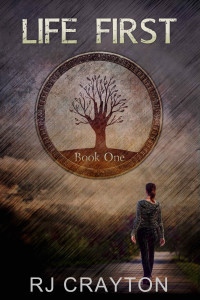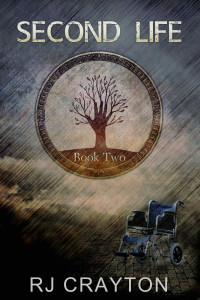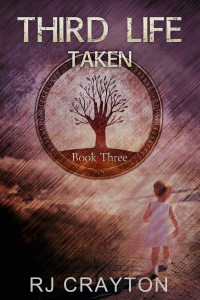R.J. Crayton's Blog, page 15
August 28, 2015
Can a Job be a Vacation?

Is this the only way to vacation?
(Photo source: Pixabay)
I ask this question very simply because I saw an article the other day about a bookstore in England that offers patrons a vacation of running a bookstore for a week. You pay 150 British pounds for the privilege.
As a book lover, part of me thinks that would be cool. I mean, I like being in charge, and at a bookstore no less. Fun, right? Well, maybe not. It’s a job. You have to deal with customers and help them find things (in a store you know nothing about) and be nice to them when they come in and ask for the book of a nutter talk show host you can’t stand. But then, you’d also get to talk about books with people who are interested in books.You could recommend things to them, get recommendations from them, learn little-known minutiae through conversation. And you’d be surrounded by that wonderful, crisp smell of paper and ink. A smell that wonderfully conveys knowledge, mystery, subterfuge, love, history, war, jealousy, rage, kindness, heart, and every other topic written on pages.
It’s an interesting prospect because there are some jobs that people consider dream jobs. But are they dream vacations? I just don’t know. I think it might be fun for a day or two, but I’m pretty positive I wouldn’t want to spend a whole week at it. I think if I were on vacation, I’d like to see the sights, see what the town has to offer, and visit the bookstore as a customer, rather than a proprietor.
Would you do a bookstore vacation? Is there any job you think would be fun to do for vacation (Spend the week as a pilot; Be an actor for a week; or even Be a Park Ranger for the week)?
P.S. Today is the last day to grab Life First for 99 cents.
August 25, 2015
The Fat Lady Has Sung
 There’s that old expression, “It ain’t over ’til the fat lady sings.” Well, today she’s singing loud and proud for the kids. Summer is over. First day of school for the kids.
There’s that old expression, “It ain’t over ’til the fat lady sings.” Well, today she’s singing loud and proud for the kids. Summer is over. First day of school for the kids.
It should ostensibly mean I have more free time during the day to get stuff done. That’s good news. I feel like the summer started off pretty well, but these last couple of weeks have been a time when I’ve gotten very little done, in terms of writing. So, I’m very much looking forward to that.
Now that fall is starting in earnest (I know some people aren’t going back until after labor day, so another two weeks), any new and exciting plans? Are you looking forward to fall, or does it mean more commitments and less time to write?
August 20, 2015
Promo Fun
 Happy Wednesday to you.
Happy Wednesday to you.
I’m doing some promotion for Life First over the next week or so. The book will be 99 cents through Aug. 28. I’ve got some advertising scheduled at various spots during the week, so we’ll see how it goes. If you know anyone who hasn’t grabbed a copy of the book, now is a great time.
The first promo site today is Robin Reads. If you haven’t heard of them, check them out. Because I’ve got advertising scheduled most days of the sale, this will be the only post I write about the sale, but I’ll post each day on Facebook, Twitter and Google+. Life First is available for 99 cents at all the retailers below.
August 13, 2015
Lyric Love : One Man Can Change the World
 I’ve mentioned before that I love song lyrics. I admire those writers so much because they can say so much vividly and succinctly. Occasionally, I post a video for a song that has really great lyrics.
I’ve mentioned before that I love song lyrics. I admire those writers so much because they can say so much vividly and succinctly. Occasionally, I post a video for a song that has really great lyrics.
Right now, I am totally in love with this Big Sean song I heard on the radio a couple of weeks back: One Man Can Change the World. It’s a tribute to his grandma, who was a huge inspiration and motivating force in his life. Check out Sean’s Instagram post for more on his grandma (the post was written after she died; and the song was written for her). This song works on every level: music, lyrics, message. It’s such a vivid tale that’s full of references to his life and her message of perseverance and hope to him. Simple lyrics, lots of heart.
I particularly like the line, “With all the drive in the world, I swear, you still need gas.” It’s simple yet evocative of the idea that we can have a drive to succeed, but it won’t work unless we fuel ourselves (mind, body and spirit,)
A song called, “One Man Can Change the World,” could end up being unrealistically preachy, but I like how it does show the flip side of the coin, sometimes deadly serious, and other times with a humorous reference: “Standin’ next to Jim Carrey, we traded stories then laughed; I said you not the only one I know got rich wearin’ masks.”
Again, lovely song. Check out the video below. You can find the full lyrics here.
August 11, 2015
So, Has Everyone Had a Productive Summer?
 I’m a writer, so I have writer friends, and one of the things I’ve noticed over the last few days is that everyone is saying they either just finished a manuscript and need beta readers, or they’re about to finish a manuscript that will be ready for beta readers.
I’m a writer, so I have writer friends, and one of the things I’ve noticed over the last few days is that everyone is saying they either just finished a manuscript and need beta readers, or they’re about to finish a manuscript that will be ready for beta readers.
It’s as if it’s been a summer full of writing for all the writers out there. And what a good thing that is, if it happens to be accurate. Of course, people always notice what happens around them and extrapolate it must be happening on a wider scale (when in fact, it’s only happening in their immediate vicinity).
Still, I find it interesting that this seems to have been a productive summer for so many I know. I, too, have a manuscript that’s ready for beta readers (just finished my final edits over the weekend). So, now I just have to find beta readers. And while it’s out with betas, I’ll work on writing one of the book’s sequels (It’s a three-part series).
So, how’s your summer been?
August 7, 2015
How Amazon’s New KU Offers Authors Way too Much and Way too Little Information All at Once
 We’ve seen an entire month of Amazon’s new way of paying authors of books available on the site’s Kindle Unlimited (KU) subscription service. Now that I’ve seen it, I must admit I think authors who aren’t moving tons of content should check their dashboard minimal amounts. Why? Because it’s maddening.
We’ve seen an entire month of Amazon’s new way of paying authors of books available on the site’s Kindle Unlimited (KU) subscription service. Now that I’ve seen it, I must admit I think authors who aren’t moving tons of content should check their dashboard minimal amounts. Why? Because it’s maddening.
But before I explain why, let’s give a quick recap for nonauthor folks. Back in mid-June, Amazon announced that starting in July, it would change the way it paid authors who participate in KU. On the reader side, KU allows readers to pay a flat fee (around $10 per month, last I checked) to read an unlimited number of titles in that program. On the author side, participating authors agree to exclusivity with Amazon, and they agree to be paid in a nontraditional way. Instead of getting paid a certain amount each time a book was borrowed (previously, to be counted as a borrow, the reader had to read 10 percent of the book), the author now gets paid based on how many pages of the book the reader completes. Amazon can track this info via Kindle software.
Amazon devised a new way to count pages; one it calls the Kindle Edition Normalized Page Count (KENPC). This number is only available to the book’s author and, in most instances, is higher than the page count listed on the product description page.
So why is this new KU both too much information AND too little information? Well, if you’re not moving tons of pages, it offers authors too much data that’s open to interpretation. Let’s take me, for example. I don’t have tons in the KU program, but one item I have has a KENPC of 184 pages.
Not long ago, I was checking my sales graph to see how many pages had been read for the day. Well, wouldn’t you know it: 183 pages had been read. So, my first thought, was, Why would someone stop on page 183? Why wouldn’t they go to page 184? I can’t imagine what more I needed to have written on page 183 to propel them forward to the next page. Stopping on the next to last page of a book really makes no sense, right?
But, here’s why it’s too little information: Amazon doesn’t tell you how many times a book has been borrowed. It only tells you the number of pages read. So, that 183 number could be two borrows: one person having borrowed and read 60 pages, while another person borrowed and read 123. And for those people to stop at those points makes sense. You expect them to simply pick up the book the next day and finish. But if it was one person, you haven’t a clue why it went down that way.
Because you don’t know, you spend time speculating and wondering. Did someone really only read 183 pages? Is Amazon measuring the page reads from devices correctly? I wonder if they read the chapter preview somewhere (the book is previewed on some other sites, like Wattpad) and just decided to skip the book’s opening page? Or does the About the Author/Other books by this author count as one page? Does that mean people don’t read that page, that they choose to skip learning more about me and the books I publish?
See all the questions that plague you when you know the number of pages read but have no context for it (because you don’t have contextual information).
It’s just maddening. And then, of course, by the end of that day, the pages read for that book had jumped from 183 to 303. Another 120 pages of that book were read, meaning there were at least two borrows of the book. Or, it could have been three borrows, with each borrower having stopped at p. 101. Or it could have been four borrows, split in some other, less even fashion.
Still, I felt even more curious a couple of days later when I had one page read. Yes, you read that right. My pages read graph showed a single page had been read. Did that person who read 183 pages go back and finish? If so, yay! Or what if someone new started the book, read page one and said, “What a piece of $#*%!”
I haven’t a clue what happened. And I won’t have a clue unless Amazon offers more information. I think it’s unlikely Amazon will, though. While I’d really like more info, I suspect there are competitive advantage reasons they want to keep that information in house. While authors’ goals often align with Amazon’s, they’re not the same, and for whatever reason, Amazon wants to keep that sales information private. Fair enough. I won’t complain.
However, since I don’t have it, I think it’s best to avoid checking the dashboard too often. Looking at that daily sales report offers just enough information to drive you mad with questions about individual readers, but not enough information to answer those questions.
Now, if you’re having massive sales, like Joe Konrath, who blogged about the new KU here (the comments are worth reading), you may not have the time, energy or inclination to examine your data closely enough to care. And your numbers are going to be such that you’re never going to get that weird day with one page read that makes you ask, “what is going in with that one reader?” The person with high page counts may even get more skewed data, though. If a lot of readers are stopping at 25 percent, they may simply perceive that as 10 full reads per day, rather than 20 quarter reads and five full reads. (Now, on face value, that seems like a ludicrous statement to me–that 20 people would pick up a book, actually start reading it and quit, compared to only five who start and finish. I just made that up to throw out numbers. Still, I have no clue whether it’s as far fetched as I think, or quite likely, as we don’t get data on how many people have borrowed the book. We only get pages read data. You can try to extrapolate from your ranking, but a book gets a ranking boost the moment the book is borrowed, even though the borrower might not even open it to read for several days or weeks.)
So the new KU is giving us interesting information, but stuff we can overanalyze (even though we don’t have enough info to make good analyses). I would suggest taking a step back from the page reads and checking less often, so your brain spends less time tackling the inevitable questions. Well, that’s my take on the matter. But, I’m curious about your opinion. How’ve you found the new KU to be? Are you enjoying seeing the pages read tick in? Does the info make you happy to have or just drive you nuts with more questions?
July 21, 2015
Brief Thoughts on Elder Abuse & Harper Lee

An elderly woman (source: Pixabay)
Harper Lee has been in the news a lot this week, with the release of her book Go Set a Watchman, her first release since her beloved tale, To Kill a Mockingbird.
When publishers said Lee, who hadn’t released a book in half a century and who had said she never planned to write another book, decided to publish her original novel, eyebrows were raised. People said Lee was being taken advantage of by her publisher and her lawyer. There was so much hue and cry that the state of Alabama investigated. Was Lee a victim of elder abuse so the publisher could unjustly enrich itself?
Nope, according to investigators. Ms. Lee was quite in her right mind an able to understand what was going on.
Yet, after the book was published, the rumors that Ms. Lee had been hoodwinked persisted. Especially once people got hold of the content. Atticus Finch, who had acted as the moral center of Mockingbird, was a racist in Watchman. Lee couldn’t possibly have wanted that, the critics said. There were also complaints that the book didn’t read well, that it appeared to have been pieced together, and wasn’t really Lee’s complete work that she authorized.
While the circumstances make it easy to jump on the Lee-has-been-taken-advantage-of bandwagon, I can’t. Why? Because the charge has been investigated by the state in which Lee lives. An agency tasked with looking after the welfare of the elderly has said she’s just fine. I suppose I could be a conspiracy theorist and say they’re in cahoots with the publishers. But, I’m not a conspiracy theorist.
I am, however, a person who believes that getting old doesn’t mean you no longer have the ability to make decisions important to your life. I believe that people can have moments in their life where they realize they’d like to do something, that perhaps they were wrong in their previous assertions.
There are definitely elderly people who have suffered a mental decline and can be taken advantage of. If anyone sees someone they believe to be in that situation, they should contact authorities. But, it’s a slippery slope when you say to someone, because you disagree with her decision, she is somehow incompetent. If the officials charged with protecting her have said there are not problems with her decision-making, then I have to go with that. If more questionable decisions occur, I suppose one could ask authorities to go back, but it can’t be a witch hunt of constant complaints until the elderly person is declared incompetent.
If you survive long enough to be of an advanced age, you deserve some respect. You deserve the right to make decisions for yourself and not have people who dislike your caretakers accusing you of being incapable of making decisions. And you have the right to make decisions that are different than decisions you’ve made in the past, because you’ve seen a lot in life.
Yes, we should protect elderly people from being abused and taken advantage of, if they’re suffering from decline, but we also have to remember that a person making decisions we disagree with are signs of a lack of competence or undue influence.
July 9, 2015
Smashwords Summer Sale!
Happy Thursday to you. I hope everyone is having an awesome summer so far.
It’s been real over here. I’m working on getting some content out. I feel bad that I haven’t published anything since March, and no fiction since last September. I’m plugging away and hope to have a couple of titles come out in September 2015.
In the meantime, I’ve opted into Smashwords’ July sale. Use the coupon code SSW50 at checkout to get my books at half-price. All three books in the Life First series are included in the sale. So, instead of paying $2.99 for the first book and $3.99 for each subsequent book (for a total of $10.97), you can get book one for $1.50 and the subsequent books for $2 each (for a total of $5.50). So, it’s a really great deal.
You can find the books here:
July 6, 2015
New Book Trailer for Life First
Happy Monday to you. Thought I’d write a quick post to let you know I’d created a new book trailer for Life First. It uses the new cover imagery, which is lovely. Here it is. Hope you enjoy.
June 28, 2015
Self-Publishing Sunday: New Amazon Payout Method will Work if Amazon Wants it to Work

My beach art – a heart and some LOVE
I’m back from vacation. I was in the Outer Banks of North Carolina for a week, and, luckily, wasn’t bitten by a shark. They’ve had six bites in the last two weeks, so glad we were involved in none of the incidents. Now that I’m back, I thought I’d throw in my two cents on the changes Amazon announced to its Kindle Direct Publishing (KDP) Select program.
The background (skip, if you understand how KDP Select works)
Authors who publish on Amazon use its basic KDP program. Authors who wish to be included in the Kindle Online Lending Library or the Kindle Unlimited program must commit to KDP Select. When authors commit to KDP Select (it’s a 90-day enrollment period), KU and KOLL members can borrow their books at no charge, and Amazon pays authors a royalty.
In the past, Amazon had a set royalty that it decided each month. Royalty rates for a borrow ranged from 1.30 to 1.80, depending on the month. All books were treated equally. A 10 page book received the same royalty as a 400 page book. Clearly, that’s unfair.
The backlash
So, in an effort to increase fairness, Amazon announced on June 15 that authors in the KDP Select, starting July 1, would be paid based on the number of pages the borrowers read. While on its face, this seemed fairer, it also caused a lot of backlash. The main problem is it’s paying authors based on how much of a book the user finishes. We don’t pay restaurants based on how much of our meal we eat. We don’t pay rent based on how many hours we sleep in the apartment (hey, I was out of town for a week; I’m only going to pay 3/4 of rent). It irked many writers because it’s a slippery slope many don’t want to go down.
My prediction: If Amazon wants it work, it will
The good news is KDP Select is an optional program, so anyone who doesn’t like it can get out. And while I think this new payment method will work out in Amazon’s favor (with the company having to pay some authors less), I don’t think the changes will be as doom and gloom and full of woe as the naysayers claim. Why? Simple. Because Amazon wants its subscription service to work. It wants to get good books to join the program, and get the scam books (the 10 pages of drek that were taking advantage) out of the program. It can’t get good books in the program by paying authors a pittance. Even though some authors are going to get paid less, I suspect the program is meant to get authors whose books are read to be paid well. Amazon wants authors in the program whose books get read.
Another reason it’s likely to work: Amazon isn’t stupid. They’ve crunched the numbers. They didn’t just come up with this program on Friday afternoon and launch it on Monday morning. I imagine, from the day they realized they were paying scammers the same amount they were paying good books, they’ve been looking for a way to put a stop to this and draw in longer works. Even though Amazon refuses to tell authors their predictions, they have predictions. They have seen the read-through rate on borrowed books and have a payout rate in mind that will get a fair number of KDP Select enrolled authors of longer works similar royalties to what they were getting before the change took place. I suspect they know what the sweet spot is for the payout and will add more money to the payout pot to get it there.
The new program is clearly designed to get rid of junk shorts. It’s not clear how much the new pay per page system will hurt legitimate short stories. If the payout rate is a penny per page, then 30 to 40 page shorts will earn for a borrow about the same as they earned for the sale of a 99 cent book. If the payout is less than a penny per page, then the program probably will drive shorts out of it. Though, some writers of shorts will stay in the program if they have strong borrow rates that improve their overall visibility on Amazon.
If the loss of short works becomes a problem for Amazon, I’m sure the company will come up with a solution.
For those who aren’t sure what to do, I’d recommend giving it a shot for at least the first month, to see how it goes. My self-publishing book is in Select, and I decided to let the term renew just to see how the new process works. I’m also curious about my read-through rate. Generally, Amazon doesn’t share this data, but I’d love to know what percentage of the book people read. Though, I’ve got to admit, nonfiction may not be the best one to experiment with because readers may read nonlinear, or cherry pick the bits of info they need. I don’t know if the data I get from the new model will give a real good sense of what parts of my book people are reading. Because they can skip around, I’ll just know they read 20 pages, but not what order. For a novelist, I think it’s safe to assume, if a person read 20 pages, it’s the first 20 pages and that they did not read 10 at the beginning and 10 at the end and then quit. So, I think the page info will be more useful for novelist.
I plan to release my next novels in September, so by then, I think I should have a good idea of how the new system works, and I’ll be able to decide if I want in or out of the pay-per-page read system. In general, I’m not fond of the idea of being paid that way. However, I don’t know that the way it will be rolled out by Amazon will be disadvantageous to the author. I really think Amazon wants its subscription service to work, and if authors in the program aren’t paid a fair wage, the good authors will leave and the subscription service won’t work. So, I think the payouts will at least be commiserate with what authors were getting before the change was made. Some people have speculated that payouts will actually be much higher for authors with a high read-through rate.
I’m not saying the program won’t have a few bumps as it finds its way. It will. But, ultimately, I think, as long as Amazon wants its Kindle Unlimited subscription service to work, it will figure out a way to make the payout system work for authors. KU doesn’t work without content. Amazon knows that and authors know that, and I don’t think Amazon would propose a system that they know would drive out good authors. I’m not saying to have faith blindly or trust blindly that it will work out. But, I do think it’s worth sticking around the first couple of months to see what happens.
If you are in Select and don’t like the changes, or just aren’t sure you want to be one of the first people to test out a new system, you can opt out of Select prior to the end of your enrollment period. I wrote a piece for Indies Unlimited with instructions.
One last note. There is one group of authors who come out real losers in this pay-per-page plan: children’s book authors. They have books that are legitimately short, but deserve to be paid more per page than a typical novel would be paid per page. illustrations are expensive, and the children’s books just don’t fit into that per-page model. Last I’d heard, Amazon hadn’t addressed this issue. If I hear that they are addressing children’s books, I’ll post a link here on the blog.










